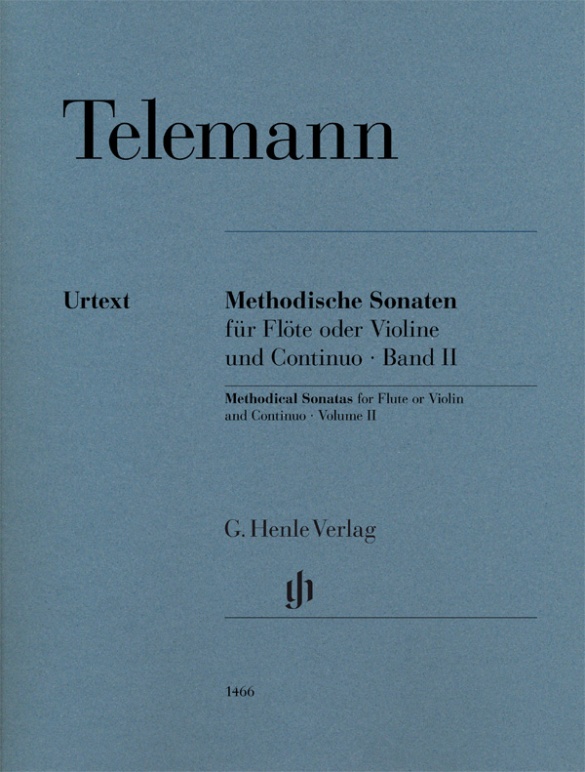

Georg Philipp Telemann
Methodical Sonatas for Flute or Violin and Continuo, Volume II
“Methodical” was how Telemann’s six sonatas were described when they were published in 1732, because they included a second, ornamented version of the simple melody line of the solo instrument for the slow opening movements and for the second movement of the c-minor sonata. This is music that is both instructive and also a delight to play, and G. Henle Publishers can highly recommend it to the flautists and violinists of today. This lavishly appointed new edition is the only one to evaluate all available sources. It has separate solo and bass continuo parts that contain the other part in each case for orientation purposes. There is also an additional part featuring only the figured bass line. This edition includes the score, which also features a historically faithful realisation of the figured bass. The first volume of “Methodical Sonatas” has already been published (HN 1266); this means that all twelve of Telemann’s sonatas are now available as Henle Urtext editions.
Content/Details
About the Composer
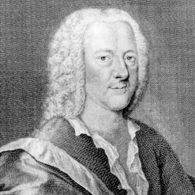
Georg Philipp Telemann
One of the leading German composers of his day, particularly as regards his German-language operas as well. Also from his pen came an extremely large number of liturgical works (especially cantatas), which came about within the context of his appointments and the compositional duties associated with them.
| 1681 | Born in Magdeburg on March 14. |
| 1701–05 | He studies law in Leipzig, but is active as a singer, librettist, and composer at the opera, and after 1702, also as its music director. He writes music for the St. Thomas Church and St. Nicholas Church. Founds a student Collegium Musicum. |
| 1704 | Organist and music director at the New Church. |
| 1705–08 | Court musical director in Sorau. |
| 1708–12 | Music director in Eisenach; composition of liturgical cantatas, masses, as well as other sacred and secular vocal works, instrumental concerti, and sonatas. |
| 1712–21 | City music director of Frankfurt am Main; composition of liturgical music and music director at the Church of the Discalced and the St. Catherine Church; reestablishment of the Collegium Musicum of the Frauenstein Society and thus the beginning of regular concert life in Frankfurt am Main. |
| 1716 | Premiere in Frankfurt of his Brockes Passion. |
| 1721 | Premiere in Hamburg of the opera “Der geduldige Socrates.” He becomes cantor at the Johanneum Latin school and music director of the city of Hamburg. The five main churches of Hamburg were thus under his musical direction. Composition of church cantatas, secular cantatas, “Captain’s Music,” instrumental music; establishment of a Collegium Musicum. |
| 1722 | He assumes the musical directorship of the Oper am Gänsemarkt (until 1738) and composes a large number of theatrical works for Hamburg. |
| 1725 | Premiere of the intermezzo “Die ungleiche Heirath oder das herrsch-süchtige Cammer-Mädgen” (‘Pimpinone’), which is still his most well-known work for the stage. |
| 1728 | Premiere of “Die Last-tragende Liebe oder Emma und Eginhard,” the most important of his surviving Hamburg operas. |
| after 1755 | Composition of vocal works in collaboration with various poets. |
| 1767 | Death in Hamburg on June 25. |
Product Safety Informations (GPSR)

G. Henle Verlag
Here you can find the information about the manufacturer of the product.G. Henle Verlag e.K.
Forstenrieder Allee 122
81476 München
Germany
info@henle.de
www.henle.com
In Tibia 3/2017 (S. 541) hatte ich Gelegenheit, Vol. I der Neuausgabe von Telemanns Methodischen Sonaten durch Wolfgang Kostujak im Henle Verlag zu besprechen. Der Schlussatz meiner begeisterten Rezension lautete: "Ich freue mich schon auf Vol. II!" Eben dieses Volume liegt jetzt vor mir und bestätigt, ohne dass ich die Details meines Textes hier wiederholen möchte, in allen Punkten meine Einschätzung von Vol. I! Wer eine mustergültig betreute praktische Ausgabe dieser Standardwerke des galanten Stils für Flöte bzw. Violine und B. c. sucht, ist hiermit bestens bedient und sollte sich auf jeden Fall beide Bände zulegen.
Tibia, 2018Henle’s carefully detailed and generous text provides a flute/violin part with smaller figured continuo part underneath, separate basso continuo and basso (cello) parts, and a full score.
Stringendo, 2018recommendations
autogenerated_cross_selling
Further editions of this title
Further editions of this title


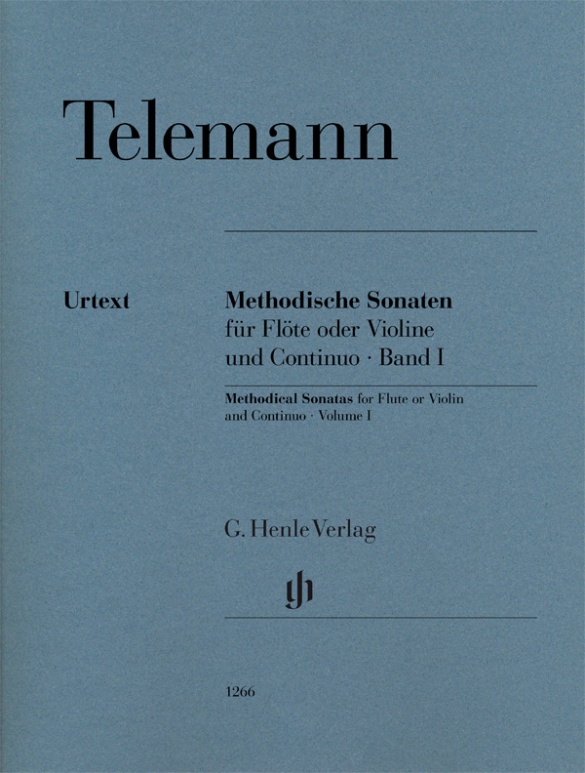

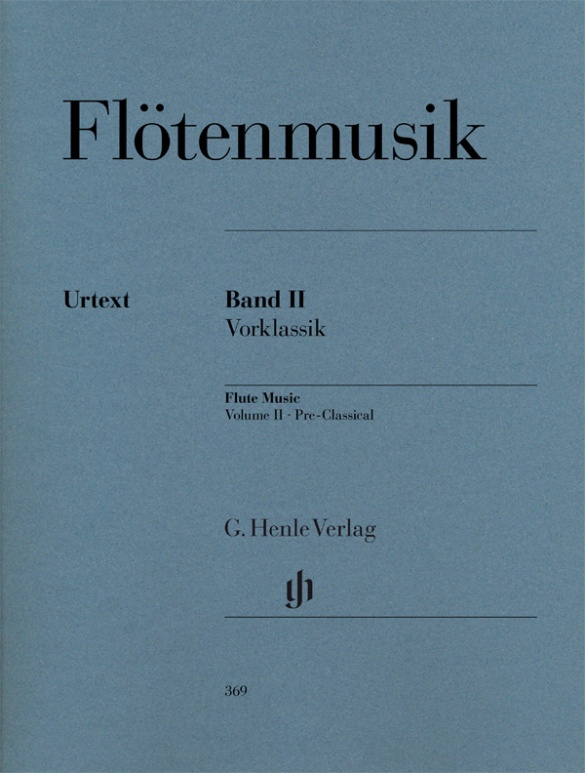
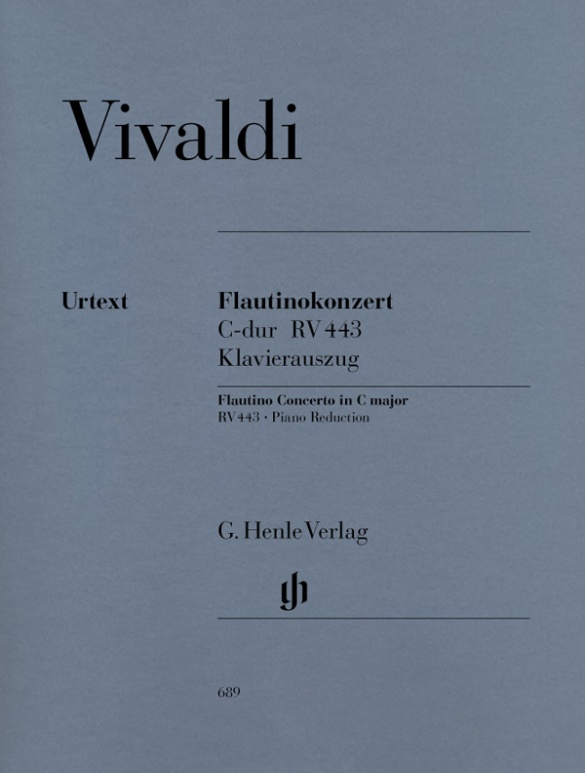
- includes a solo and a basso continuo part, with the other part also printed to aid orientation
- extra part with just the unrealised but figured bass line